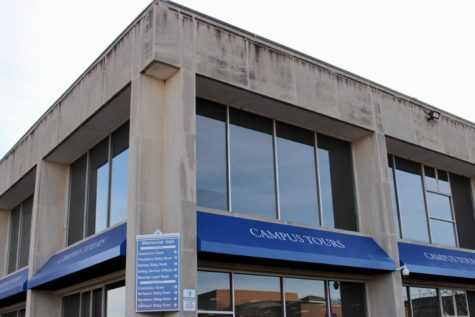Proposed Act Eliminating the Non-medical Exemption to the Immunization Requirement May Affect Students
February 9, 2021
In a Public Health Committee meeting on Friday, Feb. 5 over Zoom, several major health bills were proposed, including “An Act Eliminating the Non-medical Exemption to the Immunization Requirement,” which may potentially impact Central Connecticut students in regards to the school’s immunization requirement.
According to State Representative Jonathan Steinberg, the act to eliminate non-medical exemptions for vaccine requirements is virtually the same as the one proposed last year, even down to its name. Last year, the proposed bill did not make it to a vote but has been re-introduced this year by State Senator Mary Daugherty Abrams.
If passed, the bill will remove the non-medical exemption for students attending colleges and universities, public or private schools from pre-kindergarten through grade twelve and children in daycare in the state of Connecticut.
Rep. Steinberg explained the primary features of the bill at the meeting Friday.
“The bill does two significant things. It clarifies and strengthens the pass for families to obtain a medical exemption and provides oversight to make sure that if this bill becomes law it’s implemented appropriately,” Steinberg said. “And the other thing it does is it removes the religious exemption for vaccines.”
The Public Health Committee has made one major change to the bill in which the grandfathering would begin at seventh grade and above.
The change comes after the chairs consulted with others and looked at the data. According to Steinberg, they found there was less of an issue with vaccination rates in middle and high school and the trend of below compliance levels in schools was taking place at the elementary school level.
“We chose to follow the data and tailor the grandfathering to address the problem that the bill is trying to address,” Steinberg said.
The Public Health Committee has raised a House bill under the title of immunizations, but there is a related Senate bill that focused on removing non-medical exemptions.
“Conceivably, they may end up being similar but it’s only likely that one would move forward at some juncture,” Steinberg said.
Sen. Daugherty Abrams expressed her attempt to be as transparent as possible in the title of the bill; however, concerns were raised by State Senator Heather Somers.
“Really what the bill does is it takes away a religious exemption,” Somer said. “There is nothing in Connecticut’s statute that is a non-medical exemption, it’s called a religious exemption so for clarity I wish that the title had said that.”
According to Sen. Daugherty Abrams, she chose the wording on purpose because although there is currently a religious exemption in its language, there are other states that use philosophical differences as an exemption.
“I wanted to be clear that the purpose would be to only have medical exemptions when it comes to the immunization requirements,” Sen. Daugherty Abrams said.
The bill will be ready for viewing by the public shortly, and there will be over a week between that point and the time in which the public hearing will happen, which will offer individuals time to review the bill, to send in questions, and express their opinions.
“We have a responsibility to be very vigilant in ensuring that we focus on addressing the issues and getting all shareholders’ perspectives and it may take some time but that’s what we’re here to do so I’m eager to be a part of that process,” State Senator Tony Hwang said.
Any individual who missed the Public Health Committee meeting can view it on their Youtube channel.











